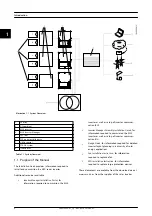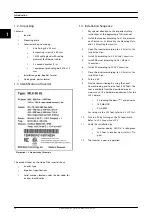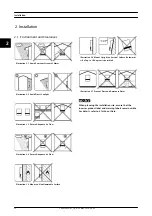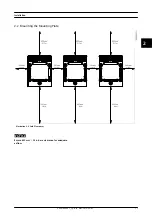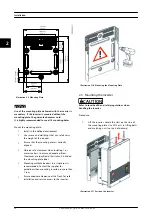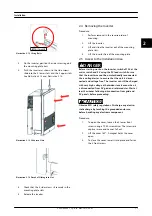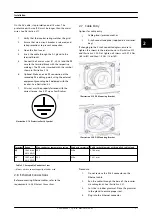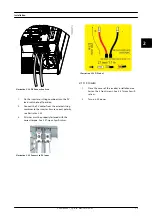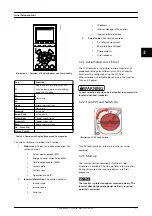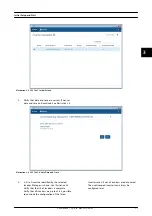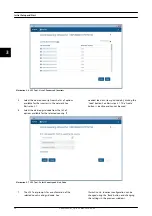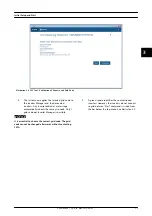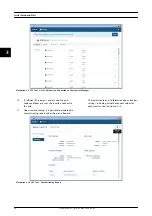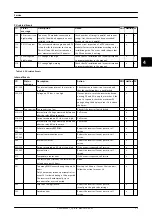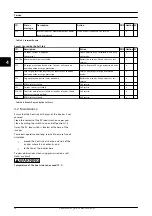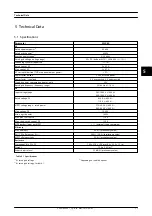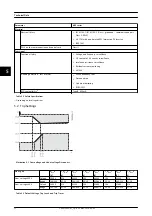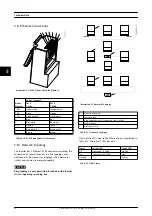
Illustration 3.1 Overview of Display Buttons and Functionality
Key
Function
F1
Adjust contrast level of display. Use
arrow up/down button while holding
down the F1 button.
F2
Not in use
F3
F4
Home
Return to main screen
OK
Not in use
Arrow Up
A step up
Arrow Down
A step down
Arrow Right
Toggles screen right
Arrow Left
Toggles screen left
Back
Return to main screen
On - Green LED
Alarm - Red LED
Table 3.2 Overview of Display Buttons and Functionality
The screen structure is divided into 3 sections:
1.
Main screen
. Current and daily production. This
section contains:
•
Actual power output (kW)
•
Energy counter current day (kWh)
•
Total energy counter (kWh)
•
Current date
•
Current time
•
Operation mode (
#
)
2.
Inverter information
. This section contains:
•
Inverter type
•
Inverter name
•
Serial no.
•
IP address
•
Inverter Manager MAC address
•
Inverter software version
3.
Actual values
. This section contains:
•
PV voltage and current
•
Phase-to-phase voltages
•
Phase currents
•
Grid frequency
3.2.1 Initial Setup via LCS Tool
The LCS Tool makes it possible to chose from a list of
predefined settings for different grids. All grid-specific
limits must be configured using the LCS Tool.
After installation, check all cables and close the inverter.
Turn on AC power.
WARNING
Correct selection of grid code is essential to comply with
local and national standards.
3.2.2 Turn PV Load Switch On
Illustration 3.2 PV Load Switch
Turn PV load switch on, either via inverter or string
combiner.
3.2.3 Start-up
The inverter starts automatically if sufficient solar
irradiation is available. The start-up takes a few minutes.
During this period, the inverter performs a self-test
procedure.
NOTICE
The inverter is protected against reversed polarity. The
inverter does not generate power until any reversed
polarity is corrected.
Initial Setup and Start
L00410644-01_2q / Rev. date: 2014-06-02
21
3
3


